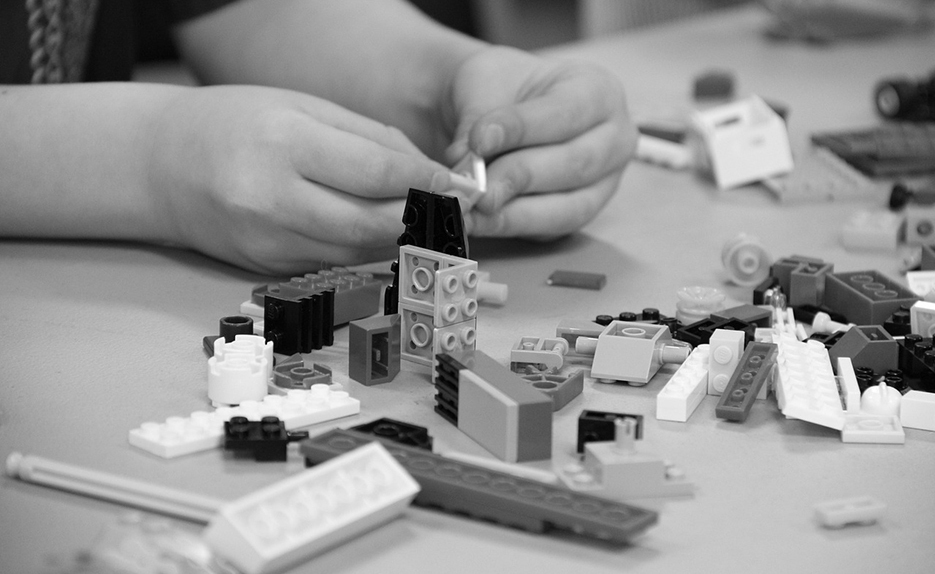Carter* is an eight-year-old boy who, like so many his age, loves to play Lego and toy trains but unlike his peers, Carter lives with a foster family and is learning to live with autism.
Despite adversity and tackling challenges so much bigger than himself, Carter is writing his own success story.
Carter moved from a Regina placement to Ranch Ehrlo’s Treatment Foster Care (TFC) program in April 2023. The TFC was deemed a good fit for Carter, who has intensive needs beyond those that the traditional foster care system can accommodate.
Since moving to a small community outside of Saskatoon, Carter has found love within the Berezowki household and resounding success at his small-town school.
“This family has done such amazing work with this little guy and he’s just thriving,” said Dianna Stang, TFC program manager. “He still has some very significant challenges, but he’s doing pretty amazing.”
Prior to joining the TFC program, Carter made the attempt to attend a mainstream school for the first time in his life, entering Grade 2 with no assessments, no diagnoses, and no supports. At the time, the Regina school was struggling, staff were struggling, and Carter was barely making it half an hour a day in the classroom.
“Unfortunately, his aggression toward students and his inability to cope with the daily routines and expectations of school was too much and he was only able to remain at the school 30 minutes per day, spending the bulk of his time in the library or away from the classroom,” explained Dianna. “He couldn’t do any academic work. He was really, really struggling.”
So, when Carter moved to rural Saskatchewan to be with his new foster family, the goal was always full-time school.
Carter’s network advocated extensively to get him the supports he needed to be successful. The young boy now receives the level of supports that he needs: working with a clinical caseworker, clinical manager, speech and language therapist, psychiatrist, psychologist, occupational therapist, and one-to-one educational assistant. After being diagnosed with autism, Carter was also linked up with autism services which made some recommendations and worked with his local school.
“The goal is to grow his community and to make connections so that Carter can succeed and has the tools to learn the skills he needs to thrive,” said Dianna. “It’s a very collaborative effort; foster parents are arguably the important piece of the treatment team. Whereas the caseworker will do the clinical assessment pieces and develop the treatment plans, the foster parents are responsible for implementing those strategies in the home.”
Almost exactly one year after joining the TFC program, Carter successfully completed his very first, full day of school on April 9th. He participated in classroom activities, interacted with new friends, visited the post office, and is moving forward on his lifelong learning journey.
“He’s definitely made some ground,” agreed Tim, Carter’s foster father. “He’s a great kid who’s growing and learning every day. His ability to make decisions has improved, his functioning has gotten stronger, and he’s better able to learn and work through the hard stuff now.”
“We’re hoping school will help him build new and different skills that he can rely on going forward,” added Melissa, Carter’s foster mom. “I hope this contributes to his confidence, his self-worth, and his understanding that he can do things that are hard and sometimes scary.”
Carter is the sixth child the couple have fostered thus far, and Dianna said it shows in their incredible skill and ability to work with Carter.
“The family is very skilled, very patient, and really doing well,” she explained. “Initially it was tough…but they’ve been very diligent and learned how to work with Carter.”
Carter is Indigenous, as is Melissa, so the family works together to “live and breathe” culture into their home, said Dianna. They use a lot of land-based learning which has been effective and connects well to treatment plans and promotes health and wellbeing for Carter.
“We open him up to his surroundings and his relationships with every being and we give him knowledge about how all communities work together, not just people communities,” explained Melissa.
“Activity-wise we camp, fish, canoe, hike, and garden. We also have animals, so he helps to look after them and understand those relationships and responsibilities as well,” added Tim.
Going forward, the goal for Carter is to finish this school year as a full-time student and to continue working toward personalized academic goals and social skills.
*Pseudonym used to protect child's identity


